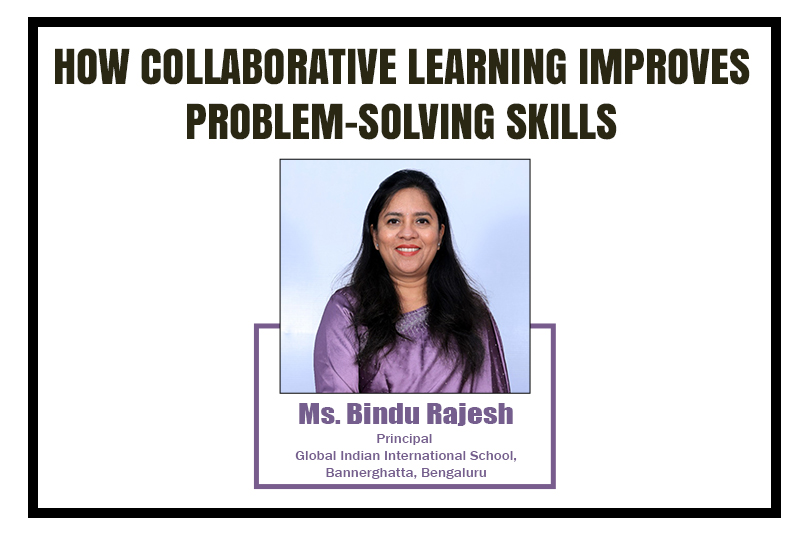Girls in Leadership: Inspiring Change with Ms. Veena Gowthamchand – Jain Public School
“Empower a girl to lead; she becomes more than a voice—she becomes a vision. She doesn’t merely rise; she uplifts. She breaks barriers, builds bridges, and becomes the light that guides generations toward change.”
These words from Ms. Veena Gowthamchand, Director of Jain Public School and Jain Toddlers, reflect her deep belief in the transformative potential of girls in leadership. For her, education is not just about academics—it is about nurturing changemakers who can inspire communities and redefine the future of leadership itself.
In today’s evolving world, where inclusion and equality are taking center stage, the rise of girls in leadership is one of the most promising shifts. Whether in classrooms, school parliaments, eco-clubs, or global platforms, girls are no longer waiting for space—they are creating it.
Seeds of Leadership Sown Early
Ms. Veena emphasizes that leadership begins in the simplest of roles. A class monitor ensuring fairness, a sports captain motivating her team with encouragement, or a student who speaks up for the unheard—these small but powerful moments sow the seeds of future leaders.
From her perspective, schools play a pivotal role in nurturing these qualities. She believes that when educators provide platforms for girls to lead, they are not just assigning tasks but nurturing visionaries. Such opportunities instill courage, confidence, and a sense of responsibility, proving to young girls that their voice carries weight and their actions matter.
She often highlights that “Schools are the first training ground for leadership. If we mindfully encourage girls to take charge, we don’t just empower individuals—we inspire generations.”
Rising Beyond Stereotypes
Despite progress, Ms. Veena acknowledges that many young girls still face barriers—social expectations, gender stereotypes, and unconscious biases often limit their leadership opportunities. Yet, again and again, girls rise above these hurdles.
At Jain Public School, initiatives led by students showcase this resilience. Girls have championed cleanliness campaigns, led eco-friendly projects, initiated mental health circles, and used art as a tool for awareness. Others have taken bold steps into technology—coding innovative solutions, debating policies, and designing impactful projects.
To Ms. Veena, these are not isolated achievements but proof of a larger transformation: that girls are steadily dismantling outdated norms while proving that leadership is not defined by gender, but by vision and action.
She remarks that girls' leadership may not always be loud, but it is undoubtedly lasting. Their efforts demonstrate that change can be achieved through empathy, resilience, and creativity.
Changemaking with Compassion
According to Ms. Veena, what distinguishes girl leaders is their unique blend of competence and compassion. Unlike traditional leadership models that emphasize control, many girls lead empathetically. They listen, include, and uplift others, creating an environment where collaboration flourishes.
She explains that this leadership style is precisely what the modern world requires. Whether a school captain ensures inclusivity or a young advocate campaigns for sustainability, their focus remains rooted in human connection.
In her words, “True leadership has a heart. And it beats strongest in those who lead with care.”
This approach redefines how leadership is perceived in schools and society. Girls are proving that strength and sensitivity can coexist, and in fact, this balance makes their leadership transformative.
Lighting the Way Forward
Ms. Veena also acknowledges that the leadership journey is not free of challenges. Young girls face doubts, setbacks, and even resistance. Yet, she believes that each obstacle they overcome builds resilience and strengthens their resolve to lead.
She often stresses that educators and parents are responsible for offering encouragement, affirmation, and recognition. To her, leadership should not be viewed as a privilege granted but as a flame nurtured through guidance and support.
Institutions like Jain Public School ensure that girls are not only given roles but also the confidence to grow into them by providing platforms such as student councils, debates, social outreach programs, and school-led campaigns.
Her vision is clear: “When girls lead, schools transform, conversations shift, and the future changes. And this is only the beginning.”
The Role of Jain Public School in Empowering Girls
At Jain Public School and Jain Toddlers, Ms. Veena has deeply embedded the philosophy of empowerment within the school’s culture. The institution actively encourages students to participate in leadership activities, enabling them to practice decision-making, teamwork, and social responsibility.
The school creates opportunities for girls to lead meaningfully through student parliaments, cultural initiatives, environmental clubs, and social projects. These platforms are not symbolic gestures but genuine spaces where students learn to collaborate, resolve conflicts, and innovate solutions.
Parents and teachers also play an integral role in this ecosystem. As Ms. Veena points out, a school alone cannot drive empowerment—it requires families and communities to believe in and nurture girls' leadership potential consistently.
A Call to Action
For Ms. Veena Gowthamchand, the vision extends beyond Jain Public School—it is a universal call to society. She urges every school, family, and community to reflect on whether they create space for girls to lead.
Her message to every young girl is simple yet powerful:
“You are enough. You are powerful. You can lead.”
She stresses that leadership is not a privilege reserved for a few but a capacity that can be nurtured. With their unique ability to balance intellect and empathy, girls are naturally poised to become future women leaders who will redefine education, society, and beyond.
Conclusion
The girls' journey in leadership is a story of courage, compassion, and conviction. Under the guidance of women leaders in education like Ms. Veena Gowthamchand, institutions such as Jain Public School and Jain Toddlers are cultivating a new generation of changemakers.
By rising beyond stereotypes, embracing empathy, and shining through resilience, these young leaders are not just preparing for the future—they are already shaping it.
As Ms. Veena envisions, empowering girls in leadership is not just about transforming schools—it is about transforming societies. When these girls step into leadership with confidence, they become more than leaders; they become lighthouses for generations to come.





